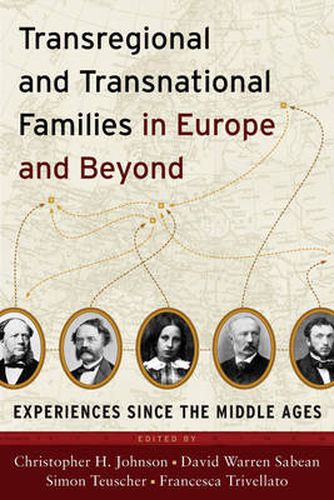Readings Newsletter
Become a Readings Member to make your shopping experience even easier.
Sign in or sign up for free!
You’re not far away from qualifying for FREE standard shipping within Australia
You’ve qualified for FREE standard shipping within Australia
The cart is loading…






This title is printed to order. This book may have been self-published. If so, we cannot guarantee the quality of the content. In the main most books will have gone through the editing process however some may not. We therefore suggest that you be aware of this before ordering this book. If in doubt check either the author or publisher’s details as we are unable to accept any returns unless they are faulty. Please contact us if you have any questions.
While the current discussion of ethnic, trade, and commercial diasporas, global networks, and transnational communities constantly makes reference to the importance of families and kinship groups for understanding the dynamics of dispersion, few studies examine the nature of these families in any detail. This book, centered largely on the European experience of families scattered geographically, challenges the dominant narratives of modernization by offering a long-term perspective from the Middle Ages to the twenty-first century. Paradoxically, transnational families are to be found long before the nation-state was in place.
$9.00 standard shipping within Australia
FREE standard shipping within Australia for orders over $100.00
Express & International shipping calculated at checkout
This title is printed to order. This book may have been self-published. If so, we cannot guarantee the quality of the content. In the main most books will have gone through the editing process however some may not. We therefore suggest that you be aware of this before ordering this book. If in doubt check either the author or publisher’s details as we are unable to accept any returns unless they are faulty. Please contact us if you have any questions.
While the current discussion of ethnic, trade, and commercial diasporas, global networks, and transnational communities constantly makes reference to the importance of families and kinship groups for understanding the dynamics of dispersion, few studies examine the nature of these families in any detail. This book, centered largely on the European experience of families scattered geographically, challenges the dominant narratives of modernization by offering a long-term perspective from the Middle Ages to the twenty-first century. Paradoxically, transnational families are to be found long before the nation-state was in place.